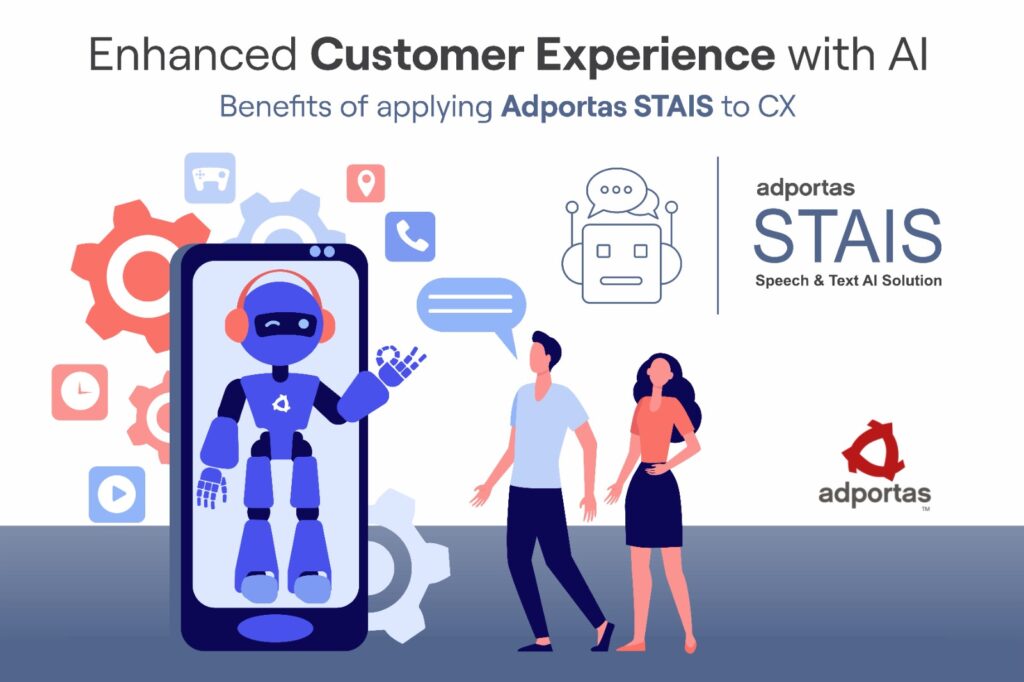Artificial Intelligence (AI) has rapidly transformed the way businesses operate and engage with their customers. With the development of cutting-edge technology, companies are leveraging AI to enhance their customer experience (CX) by providing seamless interactions with their customers. One area where AI has made a significant impact is in the call center industry. With the use of tools such as call recording, sentiment analysis, and text-to-speech (TTS), companies can provide a better CX for their clients.
Call recording is an essential tool for companies that want to leverage AI to enhance CX. With call recording, companies can capture every customer interaction, providing valuable data to improve their services. By analyzing these recordings, businesses can identify customer pain points and areas for improvement in their call center workflows. Additionally, call recordings can help companies to provide personalized support to their customers based on previous interactions.
Sentiment analysis is another critical tool for companies that want to leverage AI to enhance CX. Sentiment analysis uses natural language processing (NLP) algorithms to analyze customer interactions and identify the customer’s sentiment, whether positive, negative, or neutral. By analyzing customer sentiment, companies can identify areas for improvement in their services and tailor their interactions to meet their customers’ needs.
Text-to-speech (TTS) is a tool that enables companies to provide an enhanced CX by converting text into spoken words. TTS technology is used in chatbots and virtual assistants to provide personalized interactions with customers. By using TTS, companies can provide 24/7 support to their customers, reduce wait times, and provide a more efficient CX.
Here are five principal features that companies can use to leverage CX through call center workflows using voice recognition and sentiment analysis:
- Automated call routing: With voice recognition technology, companies can identify the purpose of the call and route it to the appropriate agent, reducing wait times and improving the overall CX.
- Personalized interactions: By analyzing previous customer interactions and sentiment, companies can provide personalized support and interactions with their customers, increasing customer satisfaction and loyalty.
- Real-time feedback: With sentiment analysis, companies can receive real-time feedback on customer interactions, allowing them to make immediate improvements to their services.
- Chatbot integration: By integrating chatbots with voice recognition and sentiment analysis, companies can provide personalized support to their customers 24/7, reducing wait times and improving the CX.
- Predictive analytics: By analyzing previous customer interactions and sentiment, companies can use predictive analytics to anticipate customer needs and provide proactive support, further improving the CX.
The use of call recording, sentiment analysis, and TTS can significantly enhance the customer experience for companies. By leveraging these tools and features, companies can provide personalized interactions, real-time feedback, and predictive analytics to anticipate customer needs and provide proactive support, ultimately increasing customer satisfaction and loyalty.
The implementation of Artificial Intelligence (AI) has had a positive impact on the sales sector, and this technological aid was what kept many companies alive during the COVID-19 pandemic. Even before the pandemic, Oxford Insights had already identified the advantages of AI. Through the Al Readiness Index 2019 report, it was estimated that the implementation of this technology would move $15 trillion worldwide by 2030, and Brazil’s GDP would increase by 1% by 2035 thanks to the use of AI. The modern consumer is more demanding, which increases the importance and challenge of each negotiation. To meet this demand, sales intelligence needs to incorporate technologies capable of automating tasks and leaving the focus on what really matters. The use of AI techniques for sales can reduce the time to perform many tasks, leaving your team more available to focus on the customer experience, and this is just one of the reasons for the success of this technology applied to sales. AI can improve the customer experience by using chatbots, personal assistants, facial recognition, and voice commands. The impact of AI on the business sector is significant, transforming management, changing the skills required of employees, and serving as tools for inventory management, marketing, and sales. The use of AI can generate a more agile, efficient, intelligent, and engaging interaction, facilitating people’s lives and improving the relationship between companies and customers.

